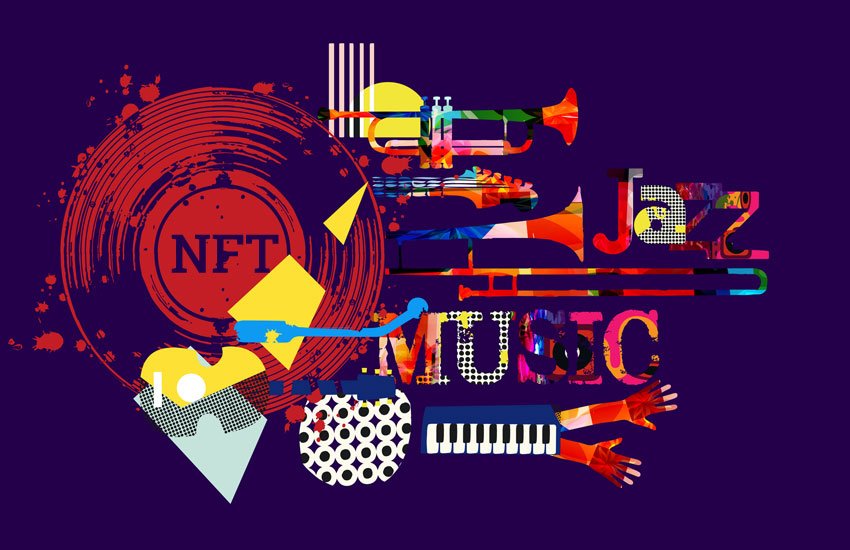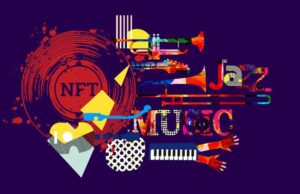NFTs Are Breaking Through In the Music Industry

by Alexis Booker ‘23
 NFTs (non refundable tokens) since 2021 have been dramatically increasing in popularity with the industry being worth an astounding $25 billion compared to only $95 million in 2020 (as reported by DappRadar which gathers data from 10 blockchains to create their results). Contrary to Bitcoin, NFTs are unique digital tokens that are directly exchanged between recipients through a protective form of technology called blockchain. What makes NFTs unique is the new introduction of blockchain technology in trading currency. Through this form of trade, there is no record outside of it that the token exists, and it will only further protect users because the tokens cannot be replicated and any transaction is listed along with it.
NFTs (non refundable tokens) since 2021 have been dramatically increasing in popularity with the industry being worth an astounding $25 billion compared to only $95 million in 2020 (as reported by DappRadar which gathers data from 10 blockchains to create their results). Contrary to Bitcoin, NFTs are unique digital tokens that are directly exchanged between recipients through a protective form of technology called blockchain. What makes NFTs unique is the new introduction of blockchain technology in trading currency. Through this form of trade, there is no record outside of it that the token exists, and it will only further protect users because the tokens cannot be replicated and any transaction is listed along with it.
Many find NFTs appealing because of the directness between transactions. They occur between the seller and the buyer only, along with it being safe and instant. This is contrary to the profit of the items that are shared normally between the seller and other companies that receive a percentage of the sale. Much like how in music buying an album from a musician, the money goes towards the artist, their label, the distribution company, and the manufacturer.
With this sudden innovation in the economy, the music industry has begun incorporating NFTs as well. Token exchanges between a musical artist and their fans provide for more personal interactions. Fans can know that they will have an immediate experience with their favorite singer or rapper, creating a sense of intimacy. In creating the NFT, the musician decides what they want to sell in it such as a virtual concert ticket, audio file, or signed merchandise before choosing a blockchain to sell it through. Fans can pay for so many different experiences in the virtual world. They can keep the token for themselves or even sell it for a higher value. Fans can now have a stake in their favorite singer’s work and the musician now has a linear pathway to communication with fans.
Ideally this makes for a perfect system of transactions but there have been numerous critiques to bring light to the flaws of NFT transactions. Small artists have spoken out about their artwork being stolen to be sold as tokens. Anonymous sellers have either pretended to be them or simply stolen their prints from the internet to mint them for profit without the artist’s consent. Aside from this, the environmental impacts are also becoming a more prevalent issue on the Internet. Journalists, experts, and social media users have all corroborated on the damage NFTs and cryptocurrency in general have on the environment because of the energy required to power them. Another large problem is the valuing of the digital currency industry entirely. Critics have brought up the value people are creating is only based on false scarcity and NFTs are inherently worthless. All these issues and others such as rampant crime, volatile prices, and security cause a lot of skeptical opinions.
With bigger musicians such as Grimes and most recently Melanie Martinez taking strides to promote NFTs into their respective fanbases, it is beginning to set a precedent for many others to follow suit. It is too early to tell whether NFTs will permanently and considerably alter the music industry because of its controversy. However, at least to some degree it will create an impact in the virtual world.